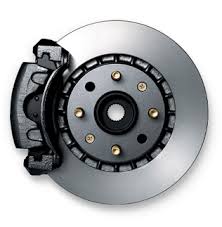brake
英 [breɪk]
美 [breɪk]
- vi. 刹车
- n. 闸,刹车;阻碍
- vt. 刹车
- n. (Brake)人名;(英)布雷克;(德)布拉克
使用频率:

中文词源
brake 刹车
词源同break.
英语词源
- brake
-
brake: There are two distinct words brake in English. By far the older is that meaning ‘overgrown area, thicket’ [OE]. Its source is uncertain, but it has been speculated that it is ultimately related to break, its original meaning perhaps having been something like ‘broken wood’. Brake ‘decelerating mechanism’ [15] meant ‘bridle’ for stopping a horse’s progress, and may have been borrowed from Middle Dutch braeke, a word which was used for a wide variety of crushing implements but also apparently for a ring put through the nose of a draught ox. There may well be some ultimate connection with break here too.
=> break - brake (n.1)
- mid-15c., "instrument for crushing or pounding," from Middle Dutch braeke "flax brake," from breken "to break" (see break (v.)). The word was applied to many crushing implements and to the ring through the nose of a draught ox. It was influenced in sense by Old French brac, a form of bras "an arm," thus "a lever or handle," which was being used in English from late 14c., and applied to "a bridle or curb" from early 15c. One or the other or both took up the main modern meaning of "stopping device for a wheel," first attested 1772.
- brake (n.2)
- kind of fern, early 14c.; see bracken.
- brake (v.)
- "to apply a brake to a wheel," 1868, from brake (n.1). Earlier, "to beat flax" (late 14c.). Related: Braked; braking.
权威例句
- 1. The harder the brake pedal is pressed, the greater the car's deceleration.
- 刹车踩得越用力,车子减速越猛。
- 2. Wade released the hand brake and pulled away from the curb.
- 韦德松开手刹驶离路边。
- 3. More than 3,000 cars were recalled yesterday because of a brake problem.
- 3,000多辆汽车因为刹车问题昨天被召回。
- 4. Illness had put a brake on his progress.
- 疾病使他的进展放缓。
- 5. His front brake cable disengaged.
- 他的前轮刹车索断了。
